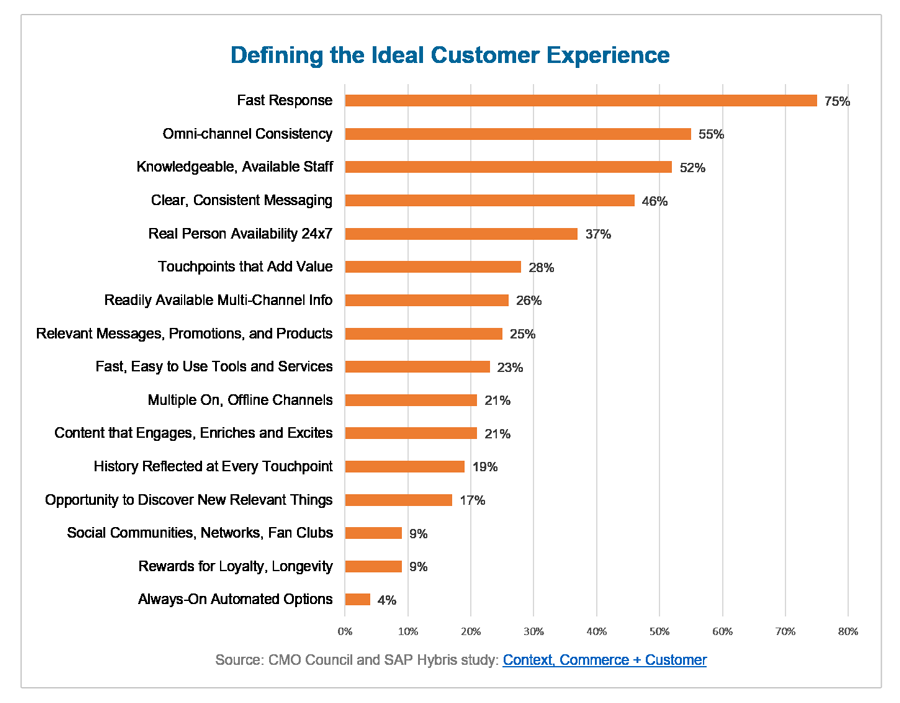Customer experience (CX) has recently become a popular concept among marketers, and brands focus more on how consumers perceive their brand. That’s how we define CX, i.e., your audience’s general impression of your brand after interacting with it. Your organization must enhance this customer experience for better marketability and implement modern theories about CX that emerged after COVID. Let’s review some important questions regarding CX and your brand.
Why do you need to understand customer experience?
Why should companies pay any attention to CX? Statistics indicate that 73% of customers consider CX a deciding factor while purchasing. In other words, your brand’s reputation among some customers may determine the influence of your marketing endeavors on your followers. The benefits of understanding customer experience involve creating better advertisements because, as current experts are slowly realizing, buyers, not sellers, have the upper hand today! A simple example people often state is that of how millions of customers right now are prepared to boycott a company simply because of the non-eco-friendly policies. Thus, brands should focus on understanding CX for the following benefits:
- Retaining more customers
- Keeping customers loyal to you
- Advocating on your brand’s behalf
- Learning what people expect from your brand
Customer experience 2022: Challenges and solutions
Certain trends are reshaping the future of customer experience as digitization becomes mainstream for business operations. Companies are dealing with CX challenges such as business silos, low-quality data, unresponsive customers, and other problems. Marketers can overcome present-day CX challenges by spreading brand awareness among customers. Leverage distance learning regarding better marketing methods to interact with people in an age where customers regulate the content they see. You can pursue some online courses to learn about marketing strategies that revolve around customer experience. All courses like that help you prepare for the future of CX by implementing the following marketing approaches:
- Create personalized experiences for your customers for better retention
- Focus your business on customer value by learning what consumers are saying
- Make your CX strategy appear different from the CX strategies created by others
- Redefine how your business will grow by integrating automation with marketing endeavors
Customer experience strategies for 2022:
Let’s discuss a few effective strategies for customer experience in-depth here and learn how you can make the customer’s experience more meaningful for them. While discussing challenges in the previous section, this article mentioned a “low-quality data” issue. Poor data-collection methods give unreliable information for a marketer to act upon to improve customer experience. For instance, more than 90% of companies today use survey-based metrics to measure their CX performance. But just 15% seem to be fully satisfied with the outcomes. In 2022, companies will require better data-collection strategies to get the right idea about customer experience. There’s one more reliable method you should try instead of surveys.
Integrating data analytics into your marketing endeavors can make data collection more reliable. Your company must collect customers’ information via smartphones and other gadgets. This data offers insights into your customers’ behavior and how they perceive your brand. Besides this, many sources for CX intelligence are available to business owners. That’s why entrepreneurs in 2022 should manipulate every possible source of this information while delivering smart CX surveys. You should know that these smart surveys must stay neutral, avoid complex questions, and not have leading questions. “How good was your experience with our company?” It’s a leading question you must avoid.
What kind of customer experience is ideal?
When discussing ideal CX strategies, customers often ask this crucial question: “How to make an ideal experience for our customers?” You may find numerous definitions online, but this article mentions the name more considerate of the CX strategies discussed before. Remember that this article talks about CX strategies in which no leading questions are asked. In other words, you should allow customers to reach a collective conclusion regarding your brand perception as autonomously as possible. When companies influence this conclusion, the results become tainted. That’s why one can define the ideal CX as an event where customers reach the desired outcome with as little friction (guidance) from you as possible.

The image above discusses some metrics with which you can describe the ideal customer experience. A perfect CX image consists of responsive customers, consistent messages, relevant promotions, multiple-channel marketing, the availability of real-person respondents, and several other factors. Moreover, the ideal customer experience can be obtained from humane content, easy-to-use tools, and rewards for a customer being loyal to the company. These characteristics make CX better and also more meaningful.
What is a customer experience management system?
One ingenious method of achieving this ideal customer experience involves getting yourself a customer experience management system. Prepare for the future of CX by obtaining this much sought-after tool. These CX management systems or platforms now enable business managers to evaluate their customers’ interactions with the company. You should invest in CX management software programs that cover the three branches of customer experience, i.e., discovery, engagement, and delivery today.
These digitization miracles organize, automate, and synchronize customer interactions with the brand. Business owners can easily and quickly respond to customers’ questions or complaints in real-time. If you don’t wish to speak to people directly, alert relevant staff members of these issues for a quick resolution. Break these silos and connect your customers to the right information at the right time. That’s where the future of customer experience is heading in this heavily tech-dependent world.
What is a customer experience ecosystem?
In the end, we should discuss the present-day industry buzzword “customer experience ecosystem” for a better understanding of the importance of CX in your company. What do we mean by the bizarre term “CX ecosystem”? This idea says that the relationship between all aspects of your company can impact CX. In other words, everyone in the company should focus on customer experience, even if some of your employers don’t interact with customers! Just because they never directly interact with consumers doesn’t mean they don’t influence CX in a way. Understand these four simple principles while creating your company’s customer experience ecosystem for a better impact:
- Understand your company’s ecosystem and know how each department interacts with the making of a customer’s experience.
- Respect the company’s hierarchy, which usually begins with customers on top and is followed by workers, suppliers, investors, and other groups.
- Make customer experience a part of company meetings and group discussions. Know that CX is the context of your company’s every decision-making procedure.
Final remarks
This article discusses how customer experience (CX) has always been crucial for a company’s marketing endeavors. The future of CX will be more data-driven, and companies are already integrating automation and personalized to improve this experience for consumers. Entrepreneurs should consider certain new CX strategies that allow them to focus on non-leading questions and get the ideal CX for better decision-making. This ideal customer experience encourages business owners to get CX management systems for interacting with customers’ questions and complaints more productively. A better understanding of CX will improve a company’s marketing techniques and help it retain more people as faithful customers.



 Bitcoin
Bitcoin  Ethereum
Ethereum  Tether
Tether  XRP
XRP  Solana
Solana  USDC
USDC  Cardano
Cardano  TRON
TRON  Lido Staked Ether
Lido Staked Ether  Avalanche
Avalanche  Toncoin
Toncoin